My Interactive Fiction is about an imaginary world where everything seems to be set in an unchanging utopia. The player plays a character that can decide to join or leave the utopia for the unknown future.
The purpose of this game is to ask “is predictable happiness the only thing we want for life? Or are we drawn to unknown even when there is risk?” Specifically, I think using game is a good media since in real life we can be very conservative and get self-absorbed in self-preservation in an uncertain world, but game give me the freedom to craft a world where we can truly ask ourselves if exploration is a necessary part of our life.
You can play the game at https://yushenlu.itch.io/377gp2
Try to get all 3 ENDing (careful not to miss the END tag in one of them)
Premise:
The player is woken up with little to no information about the world they are in, and are left alone in a room, and walk out of the room to interact with Eugene, the first and only villager that the main character is going to bond with. Eugene is a typical villager in this place, a nice and carefree character who is essentially the guide to the player. The player is then showed around the seemingly perfectly peaceful village where no conflict or danger is around.
However behind the peaceful village the player can notice some unusual things about how nobody ever leaves the village, or that everyone seems to be perfectly happy with the way things are. Then a parental figure, the Elder, is introduced who is friendly and empathetic to the player.
The main question starts to show to the player that is predictability and happiness all there is to life, and they have the option to explore the premise of the village, realizing that the obvious danger is artificially constructed by the Elder to keep everyone in line. Without this, player have the choice of adventuring outside or stay safe.
However, unlike the traditional plot, I want the player to see that not everyone is an adventurer, stable life is attractive to many of us, but is that really all anyone ever wanted?
Hopefully this game will be a self-reflection to the player to see what they truly want in their life, and how they weigh curiosity and predictability.
I wanted to make the story on Inform but gave up due to time constraints… I still try to give the user plenty of freedom in their actions so it feels more interactive and engaging. I want the player to have the feeling that they are actively making choices in their selection even if I wanted them to experience certain events. I gave them a lot of freedom in picking the order and events that they want to go through. One thing I liked about my IF is that I allowed the player to make decision and go back on their choices in many cases, since personally I found that many IF that only have one or two critical decisions to be unlike what life is. I want to emphasize the feeling of hesitation and trying to figure out what is the right thing to do. This is what life feels like to me and I want the player to be able to experience that during the story. Twine’s global variable is really helpful for me to account for different order of player making decisions.
I would like to actually make this story in Inform next time because I think it gives the player more feeling of free will, which is super relevant to the topic that I want to discuss. I also want to add more atmosphere through music and maybe more optional dialogs with other NPCs.
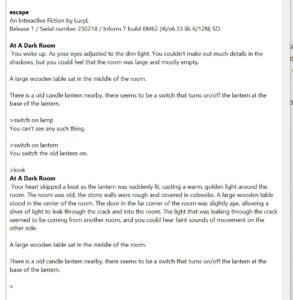
Initial Story:
I initially wanted to write a story about people planning only for the short term and ignore long term resource shortages, which is why I had the villagers plant fruits in a fixed premise; however, I failed to construct a story that feels satisfying or convincing to me. I want to player to be able to empathize with the character and be curious and discover the world, and I was either making it too dramatic or obvious. I also want the player to feel there is no obviously good choice or obviously bad ones, which I think the current version is better at demonstrating than the more complex story I was initially going to write about.
There is very little documentation (pictures) about playtesting since I have to have my friends test it remotely due to the fact that I was sick during the majority of the game development cycle.
Play-tester:
Ana: A friend in CS who is relatively familiar with games but is not in this class
Ivan: Classmate in CS377G
Main Feedback and changes:
- Some phrasing is a bit “on the nose”
- Changed the description of Utopia ending
- There are a few typos throughout the story
- Overall concept and atmosphere are neat
- Added some drawings for more atmospheric feelings.
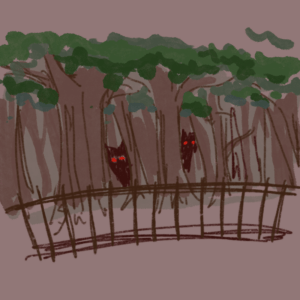
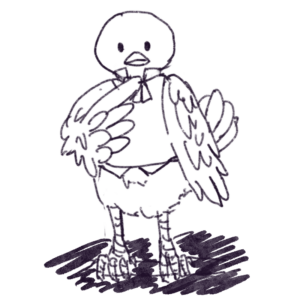
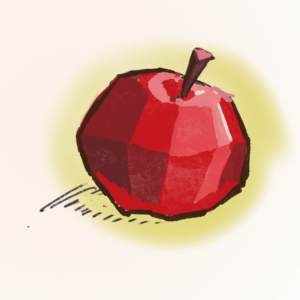
- The phrasing for memory system is odd
- I removed the part of “system” since the fact that everyone are automata is not super critical to the story
- As a player I was really drawn to see what was out there in the outside.
- Awesome! I think this is really important since in life we can be drawn to stability and predictability. Under game setting I want people to try to explore and realize that this decision is important.
- The theme seems unclear and it feels like civilization vs wilderness
- This is somewhat related to my idea, but I wanted to make this more clear, so more internal thoughts for the main character is added to hopefully guide the player


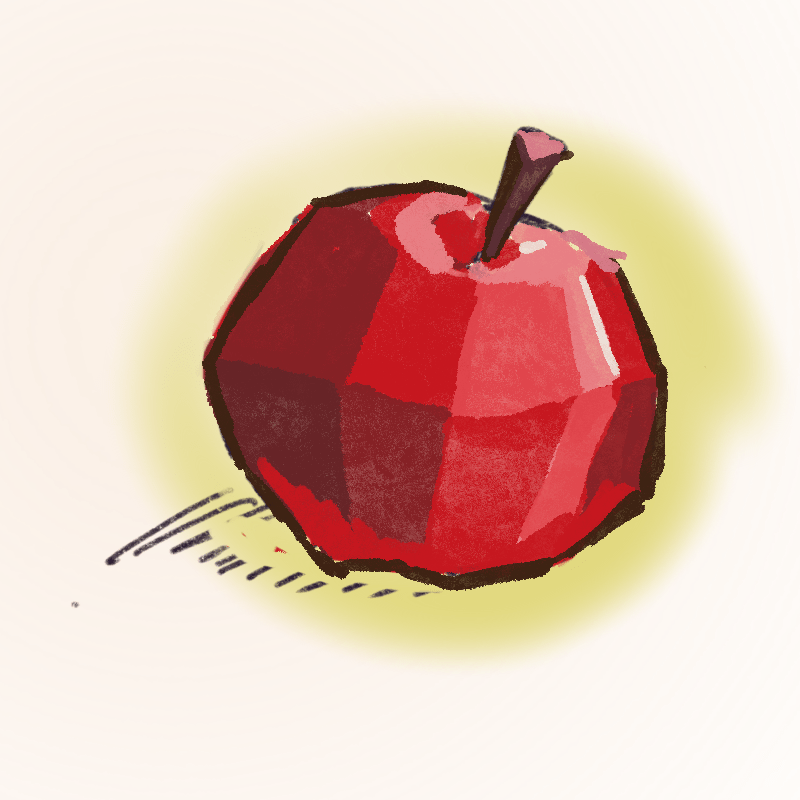

This game seems to promote the value of questioning authority and exploration. The game points out many ways that the reality of the utopian world is controlled, drawing players to want to understand what lies beyond the forest.
The game designer writes that they want players to ask: “is predictable happiness the only thing we want for life? Or are we drawn to the unknown even when there is risk?” While the game was very successful in sparking my curiosity about the unknown, I did not feel much investment in the possibility of the predictable happiness of staying in the utopian town. I think to make this side of the dilemma stronger, the designer could describe more about positive, enticing experiences of the creatures in the town.
The Twine medium was effective for this story as the game designer seeks to challenge the player to make choices about how they will engage with this strange world. I read in the write up that the designer wants to explore Inform for the next iteration in order to give the player even more free will. This could be a really strong shift, as the narrative invites exploration of a strange new place.
This game had a few great reveals, including discovering the monsters were actually a shadow projection! I wonder if there are other surprises the protagonist might discover about the world. I also wonder if it would be possible to make choices feel more consequential. How might making one choice rather than the other create an immediate impact (positive or negative) on the narrative journey?
Great job overall, this was a blast!
This game seems to promote the value of questioning authority and exploration. The game points out many ways that the reality of the utopian world is controlled, drawing players to want to understand what lies beyond the forest.
The game designer writes that they want players to ask: “is predictable happiness the only thing we want for life? Or are we drawn to the unknown even when there is risk?” While the game was very successful in sparking my curiosity about the unknown, I did not feel much investment in the possibility of the predictable happiness of staying in the utopian town. I think to make this side of the dilemma stronger, the designer could describe more about positive, enticing experiences of the creatures in the town.
The Twine medium was effective for this story as the game designer seeks to challenge the player to make choices about how they will engage with this strange world. I read in the write up that the designer wants to explore Inform for the next iteration in order to give the player even more free will. This could be a really strong shift, as the narrative invites exploration of a strange new place.
This game had a few great reveals, including discovering the monsters were actually a shadow projection! I wonder if there are other surprises the protagonist might discover about the world. I also wonder if it would be possible to make choices feel more consequential. How might making one choice rather than the other create an immediate impact (positive or negative) on the narrative journey?
Great job overall!
Some of the values I notice in this game include risk-taking and curiosity. In this IF, the story challenges the reader to think about whether they are content with what they have in life—if so, the story abruptly ends. However, predictability can be boring so by choosing more cryptic choices, the story progresses more, which encourages readers to consider taking risks and exploring this Village. Similarly, because the story has so much ambiguity (e.g. dark room, shadowy figure.), the lack of description piques the reader’s interest and makes them want to explore the unknown. Almost every branch in the story is considered a predictable or unknown choice so it is interesting to see what readers prioritize at different points in the IF. This game was intriguing to me because it made me reflect on how I value being content with what I have or if I was willing to take a risk to learn more about the mysterious Village since no one ever seems to leave or question anything. I think the medium fit the story well because there were many critical choices that had to be made throughout, which pivoted the trajectory of the IF. The types of choices made me stop and think about how much I wanted to uncover this utopia. I really appreciated the hand-drawn images on many of the pages of the IF because they created strong imagery in my head of the Village. If I were to improve one aspect of the IF, I would consider having slightly more branches, as I was taken back into a seemingly infinite loop when the reader wakes up in the darkness and is presented with two “head to building” choices so I was not sure what the choices with the same name signified.
Hello! 🙂 I am noticing values of individuality, curiosity, careful risk-taking, and challenging established authority figures to pursue one’s path. The player wakes up in a utopic agriculture-based town after suffering a head injury and navigates the question of whether it is worthwhile to stay within a safe, monotone community, or venture outward into the unknown woods.
The medium and circularity built into “repeating the same utopian day” shows this dilemma very clearly. The player learns more about the town and talks with the elder, eventually being forced to decide if they want to “join the village life” (eventually repeating the same day), or leave. The game only ends when you decide to “go into the woods,” so the game suggests that is the “true ending” for how a player can have more agency over their life.
This value of placing the majority of the responsibility on the player to define themselves was also demonstrated by how the player could ask more questions – “literally question the establishment” – until they had enough information to choose. There was also no “bad ending,” only a series of continually predictable choices until the player decides to leave.
The worldbuilding and “deep lore” also contributed to how the agency was in the hands of the player, as it was ultimately their choice to stay or go. I appreciate how this town is painted as utopia-adjacent where people are lulled here by their own complacency. Rather than a shadowy government forcing players into a system, the village elder (and other town people) seems to genuinely care about the player and does not punish (or praise) them for whatever they decide.
One of my favorite details (spoiler!) was how the elder’s “illusion box” with the red eyes in the forest was explicitly linked to the glowing red apples in the farm. This reminded me of the lotus eaters in The Odyssey, where the people are trapped not by the Trojan War, but by what they decide to consume. And in this story, the threat of fear is what powers the collective hallucination, and encourages them to placidly accept their lives. Considering how I am navigating post-graduation plans, with a wide variety of definitions of “success,” this story was a great reminder to self-reflect on how we must decide to stay safe or adventure outside not just once; we have to keep making that decision every day.
With this said, one potential source of improvement is deepening the weight of the choices by strengthening the social context of what it will personally cost them to stay or leave. The people are implied to be content – the greeting bird (I also love the ornate wooden birds!) seems confused when the player asks why they stay – but having more details on “how good their life is” would emphasize why people tend to stay with a predictable, “good enough” life instead of taking more dangerous risks. In this town, are they actually protected from wild beasts, do they have wise-enough elders, cohesive-enough laws, plentiful food and water, and other factors that impact quality of life? And what memories or personal inclinations would remind or inspire the player to leave?
I enjoyed playing your game ~ thank you for sharing! : )